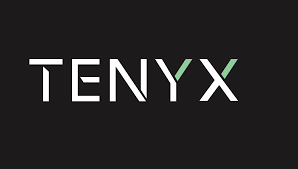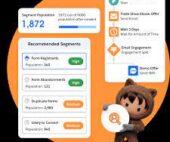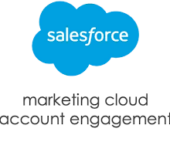Salesforce has announced its acquisition of AI voice agent firm Tenyx, with the deal expected to close in the third quarter. While the financial terms have not been disclosed, Tenyx’s co-founders, CEO Itamar Arel and CTO Adam Earle, along with their team, will join Salesforce as part of the acquisition. This move comes after Salesforce, under pressure from activist investors, previously shifted away from acquisitions and increased its share buybacks following the dissolution of its mergers and acquisitions committee. However, the company is now pursuing strategic acquisitions to boost revenue growth.
Conversational AI for
the Enterprise
Tenyx Voice is an Interactive Virtual Agent (IVA) built from the ground up leveraging today’s modern AI stack. Built by a team with a proven track record in voice AI, and leveraging a unique core AI and voice platform, Tenyx promises to redefine customer interactions for the enterprise.
Tenyx Voice is an Interactive Virtual Agent (IVA) built from the ground up leveraging today’s modern AI stack. Built by a team with a proven track record in voice AI, and leveraging a unique core AI and voice platform, Tenyx promises to redefine customer interactions for the enterprise.
Industries and Use Cases
- Surveys and Research
- Hospitality and Travel
- Consumer Services
- E-Commerce
- Financial Services
- Healthcare
- Insurance
- IVR Users
- Lead Qualification
If 2023 was the year of large language models (LLMs), 2024 is shaping up to be the year of voice agents.
When ChatGPT made waves globally, startups, tech firms, and entrepreneurs rushed to discover business use cases for the new technology. The ideal applications targeted tasks that are costly, time-consuming, and hard to scale.
Voice agents and automated customer service systems quickly emerged as one of the most promising solutions.
However, many companies deploying these systems aren’t fully considering their impact on customers.
That’s why Tenyx is launching its inaugural Voice AI Consumer Report. We surveyed hundreds of Americans across different age groups, races, geographies, and genders to better understand their preferences and experiences with AI-powered voice agents.
Here are the key findings:
- Two-thirds of respondents feel frustrated and annoyed when speaking to automated voice agents.
- The biggest complaint is the inability of automated systems to handle complex issues.
- The most important feature people want from an automated system is a faster connection to a human.
- Long wait times and difficulty understanding accents top the list of frustrations with human agents.
- Despite AI advancements, the majority of Americans trust voice agents just as little as they did last year.
- Nearly 67% of consumers are less inclined, or refuse, to shop with a brand after a negative voice agent experience.
What this means:
Frustrating Calls Hurt Your Brand
Imagine calling customer service for a quick solution, only to be met by an automated voice agent that can’t understand your request or handle complex issues. It’s a common and frustrating experience.
Our data shows that nearly 7 in 10 people express frustration or annoyance with today’s automated voice agents—sentiments that can severely damage customer loyalty and business outcomes.
“Our report highlights a major disconnect between consumer expectations and the performance of current automated voice agents,” says Itamar Arel, CEO of Tenyx. “While these systems promise efficiency and cost savings, they often fall short when it comes to addressing consumers’ nuanced needs.”
Incomplete AI Systems Drive Customer Churn
Subpar AI systems are driving customers away. Two-thirds of respondents said they wouldn’t return to a company after a negative experience with its AI voice agent.
In fact, 67% still prefer interacting with human agents over automated ones. Why? Current AI voice agents struggle with complex issues and fail to provide the empathy and problem-solving skills that human agents, or more advanced AI systems, offer.
Selective Deployment and Industry-Specific Agents Matter
Our data shows that consumers are more accepting of voice agents in certain industries than others. Sectors like healthcare, restaurants, and telecoms saw the highest satisfaction with AI voice agents, while airlines, banking, and hotels ranked the lowest.
This highlights the importance of selective deployment and tailoring voice agents for specific industries to better meet customer needs.
Looking Ahead: The Promise of Perfect Automation
Despite the skepticism, there’s hope. Two-thirds of respondents indicated they’d embrace automated voice agents if these systems could match the performance of human agents. This is exactly what we’re working on at Tenyx—building scalable, reliable AI agents that serve businesses and customers globally.
“As leaders in voice AI technology, Tenyx is dedicated to closing the gap between consumer expectations and technological capabilities,” Arel says. “Our mission is to equip businesses with AI solutions that not only streamline operations but also boost customer satisfaction.”














